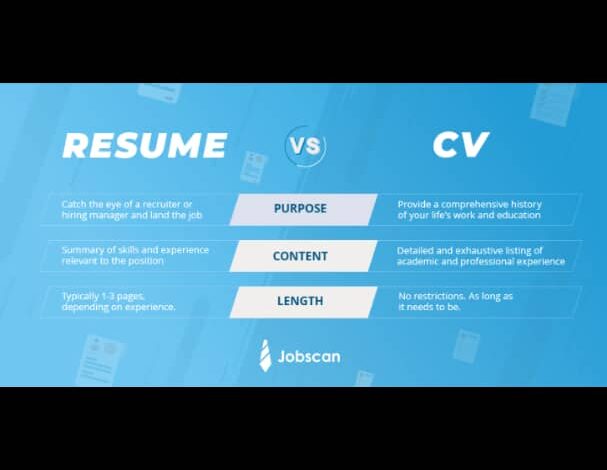THE DIFFERENCE BETWEEN A CV AND A RESUME

By Shingirayi Kondongwe CONTRIBUTOR (Opinions expressed by YOH contributors are their own.)
You are probably thinking about what the difference between a CV and a Resume is. Great! You are here today reading this article and I am going to tell you the difference. While there are so many viewpoints, the outcome is the same. I will only highlight the most important factors without wasting much of your time.
A resume is a simplified summary containing your skills and experience, whereas a CV is an in-depth and more detailed summary of your skills and experiences.
A resume is usually one-page in length whilst a CV can stretch to at least two pages or more. A resume is recommended for interns, fresh graduates, or anyone without much experience. In comparison, a CV is perfect for people with long years of work experience. Nevertheless, I am not saying graduates, interns, or people with less experience cannot use CVs. I recommend a CV for everyone in relevant circumstances.
In most cases, resumes are tailored to the job or position being applied for. On the other hand, CVs include everything whether or not some skills and experience align (tailor) with the application requirements. It is always good to take chances, believe in yourself, and apply. Who knows? Your CV may be shortlisted.
When it comes to the structure of a CV and a Resume, there is no one-size-fits-all approach. Structuring depends on circumstances or even requirements. For example, if you are planning to apply for an internship in the European Union (EU), most organizations require a pre-made Euro pass CV and all you need to do is to fill in your information. Despite the differences in structure, I will just highlight the common elements of both CV and a Resume below.
Starting with a CV, it usually includes the following key elements in chronological order, a short personal statement; work experience; education/training; achievements; and references. A resume is commonly structured in the following way, personal information; professional objective; qualifications; experience; and references. Whilst the structure of both documents is similar in many ways, the major difference is their length.
Similar Post: How to Write an Excellent Cover Letter for a Job Application?
SHINGIRAYI KONDONGWE is an African Union Scholar, United Nations Graduate Programme Fellow, and A Tony Elumelu Foundation Entrepreneur. He writes in his capacity and does not represent the views of any organization. He can be contacted at the following email: [email protected].
Please join our Youth Opportunities Hub Telegram group for daily updates by clicking the following link: https://t.me/joinchat/AAAAAE_HZrFOHOtrkfbj7A
Please follow Youth Opportunities Hub on:
Please share this opportunity with your family, friends and loved ones on:




